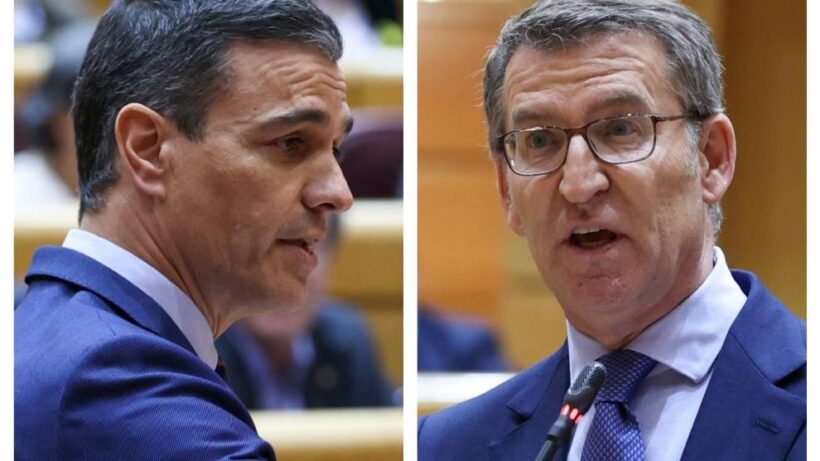Pedro Sánchez is clinging to optimism and the epic of the comeback, but the polls point to the contrary and Alberto Núñez Feijóo is aiming to become president of the Spanish government.
Beyond a classic duel between the socialists of the Spanish Socialist Workers’ Party (PSOE) led by Sánchez, or the conservatives of Feijóo’s Popular Party (PP), the advance of the far-right Vox is the main preoccupation of voters.
Some 37 million citizens will be able to go to the polls next Sunday, although around 2.6 million of them will vote by post. And although the two-party system remains dominant (PSOE and PP), the incursion of Vox poses a component never before seen in the Iberian country.
“Dismantling Sanchezism” has been the basis of the PP’s campaign against the Executive, long before the general elections were brought forward to 23 July. A strategy of demonising Sánchez in the first place, Podemos as a radical left, and any component identified with progressivism (Izquierda Unida) that has become Yolanda Díaz’s Sumar movement.
The fall in inflation, economic growth, employment, the rise in the minimum wage and the labour reform, among other realities, are systematically denied by the PP, contrary to the criteria of international and domestic organisations.
It is true that acquisitive power has fallen and energy prices are quite high. However, compared to the European average, Spain seems to be doing better.
INSUFFICIENT
As one would say in English, “not good enough”, because the narrative seems to have been written a long time ago and there is a type of Spanish voter who looks to the right with hopes of positive economic change.
In the prevailing narrative, the weaknesses of the left-wing bloc in government, at the time the PSOE with the Unidas Podemos alliance (Izquierda Unida and Podemos) managed to defuse PP corruption scandals.
They covered up a strange handling of the purchase of masks by the brother of Isabel Díaz Ayuso, the president of the Community of Madrid, and the struggle between the leader of the capital and Pablo Casado, leader of the PP until last year, ended up taking its toll.
Núñez Feijóo took over from Galicia and the stars seemed to align in his favour. Even when he made a pact with Vox in two important autonomous communities, first Castilla y León, and recently Valencia, it did not seem to matter to the electorate.
Vox denies climate change, gender violence, Spain’s dictatorial past, abortion, equal marriage and illegal immigration, among other issues, and its leader, Santiago Abascal, is emerging as Feijóo’s future vice-president.
Sánchez, in any case, is not giving up. My peculiarity is that the PP is in the doldrums, and that the Socialist Party is making a comeback,” he declared in an interview today with TVE.
The last remaining loophole, according to some observers, is if no political force obtains a viable majority, even within the possible pacts.
In such a hypothetical case, Spain could face a deadlock that would lead to new elections, something that has precedents in 2015 and 2019.
mgtft
Photo: Prensa Latina






